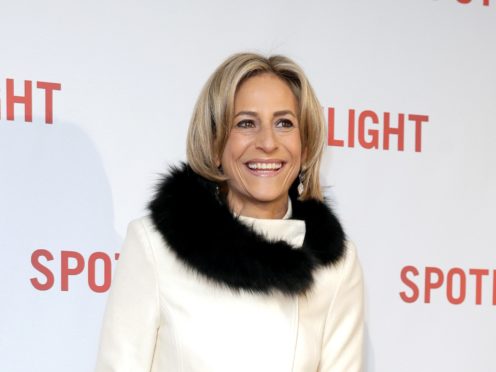Newsnight presenter Emily Maitlis has criticised politicians for failing to answer questions and trying to reduce political debate down to three-word slogans.
She also accused politicians of saying the opposite of what they really think when they are being interviewed.
Maitlis, who has worked as a journalist at the BBC for nearly 20 years, said she now “appreciates” those politicians who are able to answer a question.
Asked how she would prepare to interview Boris Johnson and what her main question to him would be, Maitlis replied: “I’m not entirely sure it matters what question you ask Boris Johnson…
Thanks for capturing this – such a lovely warm welcome and a terrific crowd. Thanks for coming ! @cheltfestivals https://t.co/Qn1zYuzqQU
— emily m (@maitlis) October 5, 2019
“Nevertheless, I think increasingly I have really come to appreciate the people or the politicians or the interviewees of any stripe and size who are able to answer a question, and it seems such a small gentle thing to demand in 2019 but it has actually become the biggest ask we can make.”
Reflecting on what changes she has seen during her career, Maitlis said: “I think what I notice now is that a lot of the things that are said to us on camera on air are not particularly believed and quite often not true, and it’s an extraordinary position to be in when you’ve had WhatsApp messages, text messages off record.
“The stuff we have been told off record tends to be the stuff that is true and the stuff we are told on record on camera tends to be the stuff that is not so true.”
Maitlis was speaking at the Cheltenham Literature Festival to promote her new book Airhead, which is a reflection on her career.
She went on to highlight recent examples of interviews with Cabinet ministers discussing former prime minister Theresa May’s attempts to get her Brexit Withdrawal Agreement through Parliament.
“It’s a really weird position to be in as a journalist because quite often you can be sitting there interviewing somebody and they say, ‘There’s absolutely no doubt we are going to get Theresa May’s deal through… stop being a pessimist and be an optimist… and we are going to get the numbers and it’s absolutely ridiculous to say we haven’t…’,” Maitlis said.
“Then the camera stops running and I go, ‘So how many do you think you’re going to lose by?’ and they reply, ‘About 80’.
“And you think, ‘Wow, that was three seconds later’. The hard thing is what is my job? I don’t want to be cosy with the guy who I know isn’t saying the truth to the viewer.
“I want to be able somehow to tell the viewer that I am trying to get the answers.
“Somehow we have to be able to indicate to our audience that we know how frustrating it is when the answers they are hearing are necessarily the answers that the person speaking them believes.”
Maitlis was asked by interviewer Emma Tucker, deputy editor of The Times newspaper: “It must be infuriating and as a journalist you hate the idea you have become complicit in this charade.
“I wonder are you actually ever tempted on air to just say, ‘To hell with this, you’re talking absolute rubbish’. The temptation to call them out must be very strong?”
The broadcaster replied: “If I do that I have lost. That just shows that I have given up and I have lost but what I do do now is… It’s amazing what a small word like ‘how’ can do to the blood pressure of a politician.”
She went on: “In the last week you will have seen the banners ‘Get Brexit Done’ and it’s a brilliant slogan from a marketing perspective.
“I was interviewing a Cabinet minister and he kept saying ‘Get Brexit Done’ and I said, ‘Great, just explain to me how?’
“There is an infantilisation of language now where we think three words shuts down debate, and that kind of panics me.
“It’s a way of saying that if you question something you are being a bit negative, or not patriotic and you don’t want to believe… on any side, whether it’s ‘Get Brexit Done’ or ‘People Before Privilege’.
“We cannot fall into the trap of just allowing the slogan to shut down debate because that’s my job.”
